Please note: This list is not exhaustive, there are HUNDREDS of other ways people will try and rip you off. Read this scan section for more.
The fake product inside another
Common with USB memory cards & Hard drives purchased direct from the far East (China etc). They place a smaller and cheaper memory stick inside a hard drive case and then add software to make your computer see the full-size drive.
How to avoid: Only buy from reputable sites & always double check reviews
The crappy description
We’ve all heard of the guy that spent £450 on a photo of an Xbox One (photo above) on eBay because he didn’t read exactly what he was paying for. He did eventually get it refunded but that isn’t the point.
How to avoid: Always double check what you’re actually getting, read reviews, check feedback and pay using a method that protects you (Paypal / Credit card)
‘Thanks for your order, oh yeah we’re just sold all your details on’
Companies are desperate to generate income, often they will sell your details on to ‘selected 3rd parties’, often they will get an amount for each of these sign ups. The Post Office amazingly are guilty of this as well!
How to avoid: Only buy from reputable companies | Check the tick boxes / terms before ordering | Setup alias details to avoid spam (including ‘their company name’ inside your full name, e.g. Peter 10ways Jones, then if they sell your details on you will know who sold them your details).
The ‘thanks for your order, now claim £15 cashback’ scam.
Often you will have to pay an upfront fee for this and/or be charged in the future. If it’s a recurring charge that you can cancel often these are notoriously difficult to cancel &/or often they say they’ve been cancelled but actually the next month you get a charge. We see something similar (although technically not a scam if you read the terms) on MyProtein, we’ve reported it many times but MyProtein earn money from anyone that signs up so of course they’re less likely to remove it.
How to avoid: Cashback deals after purchase especially when they’re offered directly after purchase (i.e. on the website after checkout) should generally be avoided. Obviously, cashback from manufacturers or cashback offered before purchase should still be claimed (but always check the small print).
Buying stolen goods
How to avoid: Ask for an original receipt or further proof of ownership, anything expensive like a laptop/smartphone etc we would expect an original receipt with it, if not then why? Ensure the device is unlocked and you’re able to use the whole thing. Read more about ‘Handling Stolen Goods‘.
If we’re buying something important then we will ask to see their ID and get them to write their details down, if they’re not willing to do this then alarm bells should ring! Yes it’s a pain for everyone involved but it might just save you/them some money one day. Agree to meet at a location like a Bank where there is plenty of CCTV around, do not meet in a car park etc.
Fake cash swaps
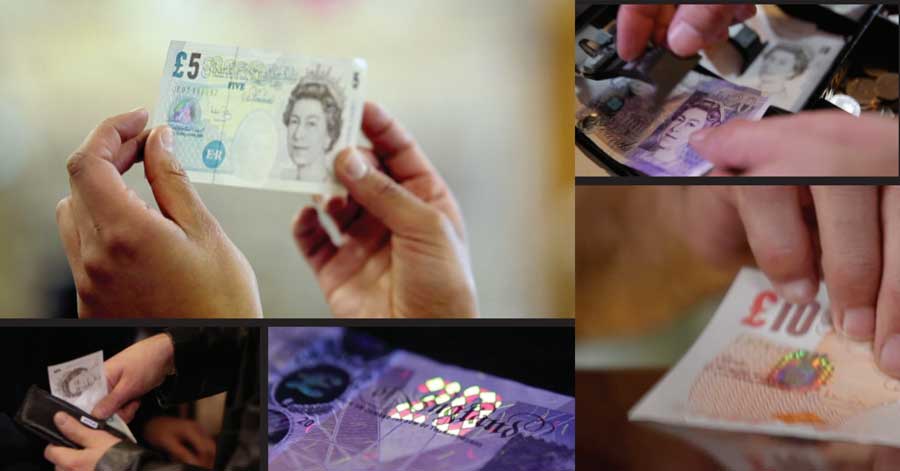
Less common if you’re the buyer but be careful of counterfeit notes (currency), an example we’ve heard about in the past is when a buyer goes to purchase with legitimate currency, the seller checks the cash and then swaps some of it for counterfeit cash. The seller then hands the currency back to the buyer and accuses them of trying to scam them. The buyer leaves all confused but actually they’ve just been scammed, the product they were planning on buying was just a ruse.
How to avoid: Get cash directly from the bank so you know it’s legitimate before giving it over, count the money in front of the person and don’t hand it to them until they agree it’s correct & they’re happy. Always make cash purchases at banks, public places etc where you know there is CCTV around. Also, learn about how to check cash is real.
Receiving bottles of water, bricks, catalogues etc instead of your products (yes this does really happen)
This scam is often done in face-to-face purchases but often these originate online, using sleight-of-hand the sellers will swap what you believe is your new laptop (or similar) with an identical bag containing a similarly weighted fake product (e.g. a couple of large water bottles with no air inside, so it doesn’t slosh).
How to avoid: Agree to meet at a bank (or similarly public place with plenty of CCTV). Request a receipt (with their name/address/contact details etc on it) and check their ID if you’re unsure, if they’re a scammer then they will say no, if they’re a legitimate citizen they will gladly show their ID (remember it could be a fake).
Before you hand over the money, always double or even triple check the contents, remember scammers are becoming equally as clever as you.
Fake websites that steal your payment details
To us, these are very obvious to spot but to some people they’re not and they will be tricked into entering their payment details into a scammed website.
How to avoid: Always look for the SSL Green bar, Lock icon on your browser etc. Use a payment provider if not, e.g. Paypal / Amazon / Google Payments etc.
Also read this guide > F*ck you scammers I’m ready for you! [10 ways to stay safe online]
Sellers shipping from China, even though it clearly mentions UK or has a UK flag in logo!
This is becoming more and more common with Amazon & eBay sellers. We don’t have a problem with people selling from China etc but often Chinese sellers will be cheaper than those on Amazon/eBay sellers that are pretending to be UK based but actually are sending from China.
How to avoid: Check the details of the seller, find their address (found at the bottom of eBay listing or found by clicking their name on Amazon), if it’s showing China then at least you know in advance. Read reviews of the sellers.
Fake emails pretending to be from sites like eBay etc.
Often scammers will prey on people that use certain online selling/buying services. I’m sure we’ve all received a Phishing scam email and these are still continuing.
How to avoid: Get a decent spam filter in place, NEVER open an attachment from anyone unless you’re 100% expecting one. If you’re unsure send them a message (not a reply) or give them a call to confirm it. Never click a link in an email you’re suspicious of and NEVER click a link and then enter login information for that website. Also read F*ck you scammers I’m ready for you! [10 ways to stay safe online]

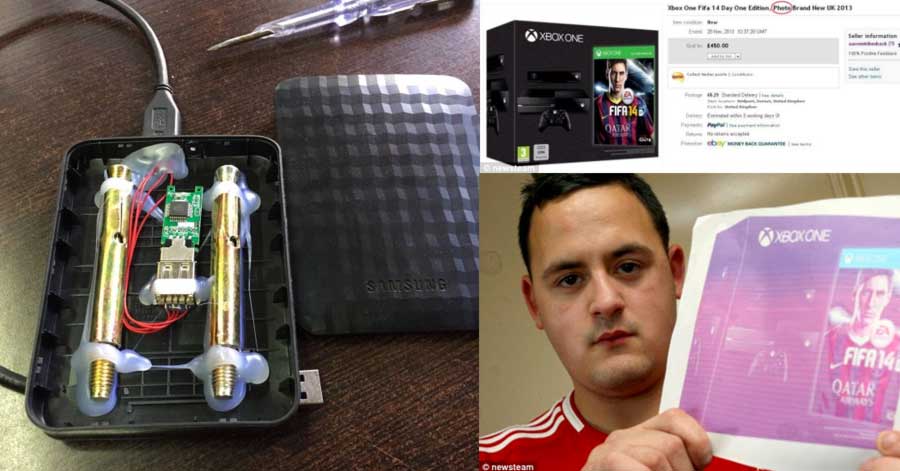
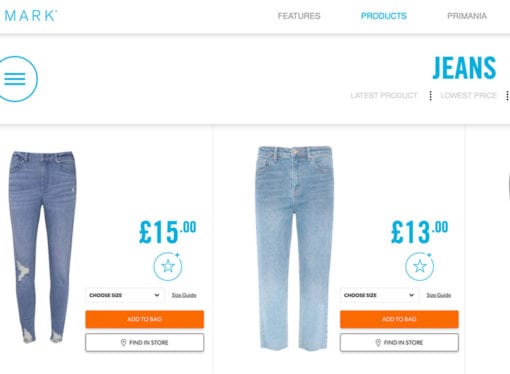

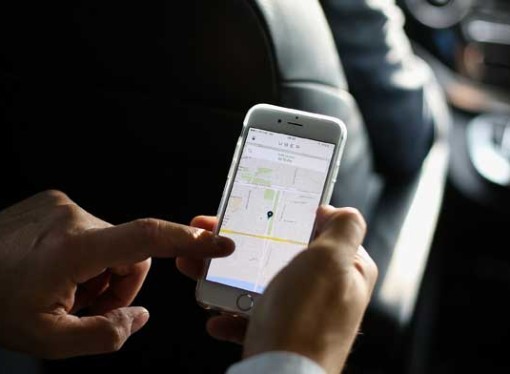

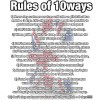











![Woman finds ‘genius’ way to make money from Tinder [scam]](https://10ways.com/wp-content/uploads/2017/07/girl-makes-money-via-tinder-100x100.jpg)








